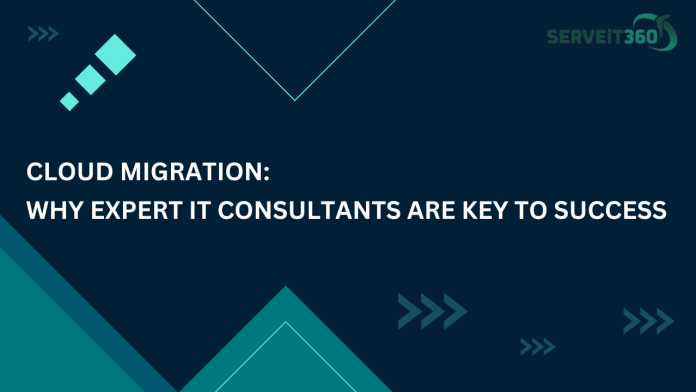In today’s fast-paced digital world, cloud computing has become critical for enterprises seeking innovation, scalability, and cost-effectiveness. Companies from all industries are migrating to the cloud to obtain a competitive advantage and streamline operations. However, the transition to the cloud is hard and needs meticulous preparation and implementation. This is when experienced IT consultants come into play. In this article, we’ll look at why you need IT consultants for a successful cloud migration and the major benefits they provide.
1. Strategic Cloud Planning and Assessment
The basis of a successful cloud migration is effective planning. A well-structured plan assists you in determining whether cloud model—public, private, or hybrid—is most appropriate for your company objectives.
Expert IT consultants provide strategic insights to examine your present IT ecosystem. They can advise you on which apps are most suited for the cloud and how to reduce the risks involved with migration.
2. Cost Optimization and Budget Management
While cost savings are one of the key reasons for cloud migration, the process might result in unforeseen charges if not well planned for.
Consultants have extensive understanding of cloud pricing methods, which allows them to optimise expenses. They assist in identifying savings possibilities, such as right-sizing resources and reducing unwanted services, to ensure that your cloud infrastructure stays cost-effective.
3. Technical Expertise and Cloud Architecture Design
Cloud design differs greatly from typical on-premise systems. Migration to the cloud necessitates a full grasp of current architecture and best practices.
IT consultants provide specialised technical expertise in areas such as DevOps, containerisation, and microservices. They create cloud designs that prioritise availability, scalability, and performance, ensuring that your applications execute best on the cloud.
4. Security and Compliance Expertise
Security is a significant priority for organisations moving to the cloud. While cloud providers provide strong security safeguards, learning how to use them efficiently is critical.
Expert consultants assist with the implementation of complete security methods such as data encryption, access restrictions, and GDPR or HIPAA compliance. Their knowledge reduces vulnerabilities and improves data protection.
5. Risk Mitigation and Business Continuity
Migration to the cloud entails risks like as downtime and data loss.
IT consultants do detailed risk assessments and create contingency plans to mitigate any problems. They also create data backup and disaster recovery policies to ensure company continuity and minimal disruptions during relocation.
6. Optimized Performance and Scalability
The capacity to scale on demand is one of the primary benefits of cloud computing. However, obtaining optimal performance necessitates specialist expertise.
Consultants fine-tune your cloud configuration for best resource allocation, ensuring applications function seamlessly. This leads to improved performance and user experiences, which are critical for preserving customer happiness.
7. Change Management and Training
Cloud migration is more about people than it is about technology. Transitioning to a cloud environment frequently demands considerable changes in how workers operate.
IT consultants play an important role in change management by offering training and best practices. This enables your team to successfully manage the new cloud infrastructure, resulting in a smoother transition.
8. Post-Migration Support and Optimization
A successful cloud migration does not finish when the last application is migrated. Ongoing optimisation and monitoring are critical to long-term success.
IT consultants provide post-migration assistance, including performance and security monitoring systems. Their proactive approach identifies opportunities for improvement, ensuring that your cloud infrastructure continues to fulfil business requirements.
9. Vendor Management and Negotiations
Given the numerous cloud service providers accessible, selecting the correct one is important for a successful transfer.
IT experts guide you through the vendor marketplace, assessing suppliers based on your specific needs. They use their contract negotiating knowledge to get better terms and price, maximising the value of your cloud investment.
10. Focus on Core Business Operations
Cloud migration requires a significant amount of resources and may divert your internal teams’ attention away from critical activities.
Partnering with skilled IT consultants allows your internal personnel to focus on essential company tasks while the consultants manage the technical challenges of migration, assuring seamless operations throughout the process.
Conclusion
Migration to the cloud has revolutionary benefits, but it takes careful preparation, skill, and execution to be successful. By hiring skilled IT consultants, businesses receive access to specialised expertise, risk mitigation techniques, and optimised solutions, paving the path for a seamless move to the cloud.
To summarise, if you’re thinking about moving to the cloud, investing in IT experts is critical. Their advice will not only improve your relocation process, but will also set your organisation up for long-term success in the digital world.


